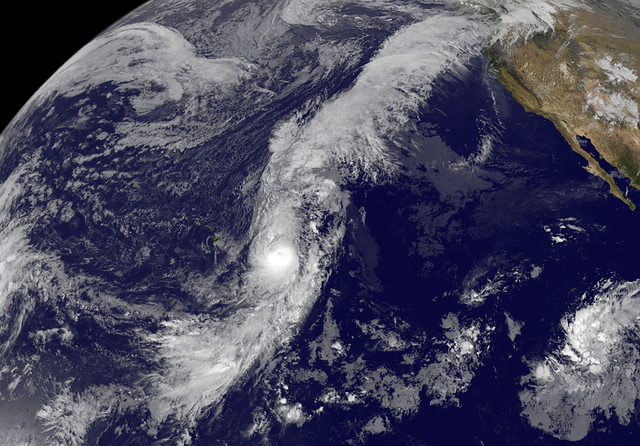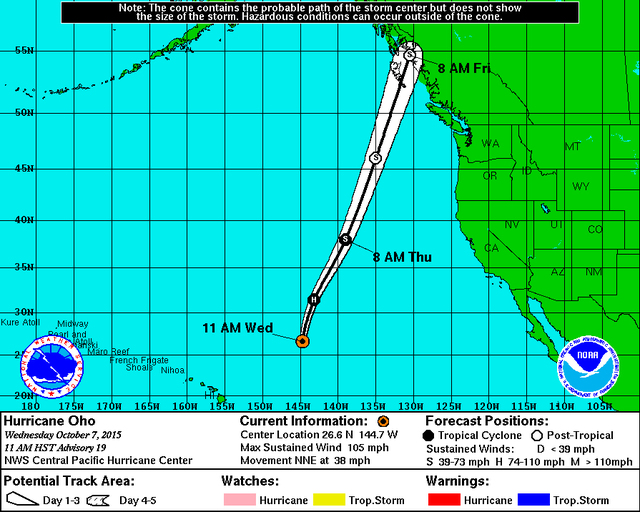Oho weakened slightly Wednesday morning, but remained Category 2 storm as it continues to track north-northeast and away from Hawaii. ADVERTISING Oho weakened slightly Wednesday morning, but remained Category 2 storm as it continues to track north-northeast and away from
Oho weakened slightly Wednesday morning, but remained Category 2 storm as it continues to track north-northeast and away from Hawaii.
As of 11 a.m. Wednesday, Oho featured maximum sustained winds of 105 mph and was located 815 miles east-northeast of the Big Island, Central Pacific Hurricane Center forecasters said. At 5 a.m., the storm was circulating 110 mph winds. The seventh named storm to form within the Central Pacific in 2015 was moving north-northeast at 38 mph.
Oho reached its peak overnight Tuesday into Wednesday, forecasters said. The storm lost its eye sometime between 5 and 11 a.m. Wednesday. As of 11 a.m., hurricane-force winds extended outward up to 40 miles and tropical storm-force winds extended outward up to 175 miles from the center of Oho.
Gradual weakening, prompted by cooler sea surface temperatures and increasing wind shear, which is known to “tear apart” storms, is expected through early Thursday as the storm continues to head north-northeast. Rapid weakening is forecast thereafter, and forecasters expect to downgraded Oho to a Category 1 hurricane Wednesday night.
Forecasters say Oho will likely move into the Eastern Pacific, which falls under the watch of the National Hurricane Center in Miami, sometime Thursday or early Friday. “There is quite a bit of uncertainty about whether or not Oho will be a viable tropical system when, and if, this occurs. However, should Oho actually cross into the northeastern Pacific basin as a tropical cyclone, this will be a rare occurrence, at least in the satellite era,” forecasters said.
In the Eastern Pacific, disorganized showers and thunderstorms associated with a tropical wave continue about 1,250 miles southwest of the southern tip of the Baja California peninsula. A tropical depression is expected to form by the weekend, forecasters said.
The Central and Eastern Pacific hurricane seasons continue through Nov. 30.
Get more hurricane-related content, including preparation tips, evacuation info and daily tropical weather updates, on our hurricane season page, sponsored by Clark Realty, at www.westhawaiitoday.com/hurricane-season-2015.




